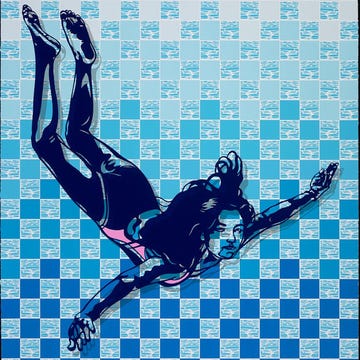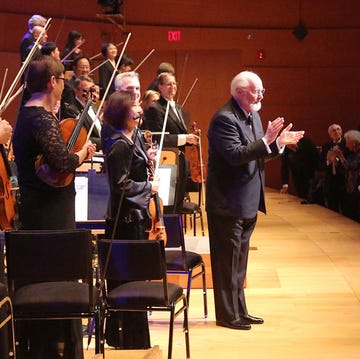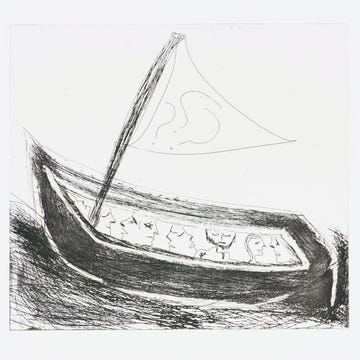These days, driving north through the scrum of agriculture and urban sprawl in California’s Central Valleys, it’s hard to imagine that this is where folk singer Woody Guthrie first fell in love with California. But in the mid-1930s, on his first trip to the Golden State, Guthrie departed from the gritty, Dust Bowl–choked Texas Panhandle, starved for water and greenery, and found paradise. As Guthrie wrote in his 1943 autobiography, Bound for Glory, he hopped trains through Indio and hitchhiked part way to Los Angeles to avoid LAPD’s anti-migrant train searches and blockades. From there, he headed north through Bakersfield along Highway 99 to visit his aunt Laura in Turlock. “The world turned into such a thick green garden of fruits and vegetables that I didn’t know if I was dreaming or not,” he wrote of one of his first views of California agriculture.
Vivid memories of California’s splendor and characters drew Guthrie back to the West Coast repeatedly (he settled in Los Angeles for a time, where he found early success on KFVD radio shows) and permeated his work. These inspired songs are included in a new, posthumously remastered double album, Woody at Home: Vol 1+2, released on August 14. Selected from 300 home recordings, the 22 tracks offer a rare, intimate look at how Guthrie thought about the world and tinkered with his music long after other artists would have moved on. The tapes were some of Guthrie’s last before he was diagnosed with Huntington’s disease (which he died from in 1967). And though the songs were recorded in 1951 and 1952 at his home in Brooklyn, California figures heavily in their ethos, including on Guthrie’s only known recording of his immigrant-rights song “Deportee” (also known as “Plane Wreck at Los Gatos”) and never-before-heard verses to his most famous tune, “This Land Is Your Land,” which begins the album.
Delivered in present tense and more whimsically than his earlier version, the words to this variation of “This Land” tumble out quickly and urgently in Guthrie’s nasal yawp, much as though he’s riffing on the song in real time:
I’m a-chasin’ my shadow a
All across this road map
To the wheat field wavin’
To the corn field dancin’
As I keep a-walkin’
The wind keeps a-talkin’
This land is made for you and me.
The anthem has been sung at protests for decades—even performed by Pete Seeger and Bruce Springsteen at Barack Obama’s 2009 presidential inauguration. Yet, as Guthrie’s son Arlo remarks in his father’s first comprehensive biography, Woody Guthrie: A Life, by Joe Klein, the song became well-known only after Guthrie’s health deteriorated—and well after he recorded the alternate version heard on Woody at Home. Guthrie could barely speak, let alone respond to the “This Land” groundswell.
The remastered tapes sound raw and close at hand. At times, Guthrie thinks out loud, including in two spoken-word ramblings in which, among other things, he explains: “I just want you to know, sort of plain as I can tell you, that I have never yet put a song on tape or record, or wrote it down, or printed it down, or typed it up, or anything else that I really thought was a through and a finished and a done song, and it couldn’t be improved on, couldn’t be changed around, couldn’t be made better.”
Folk music is often a powerful protest. Guthrie used his righteous empathy to lift up and humanize the downtrodden—laborers, migrants, Dust Bowl refugees—he met traveling the country. This is perhaps most notable in his only recording of the song “Deportee” (popularized by Seeger), about the 1948 deadly plane crash of deported immigrant workers, which appears on Woody at Home. His first-person delivery sharpens his rebuke of a work system that neither names nor values the human cost of food harvest (“Some days I’m not legal; / Some days I’m not wanted”). Some 75 years gone by, his words are eerily prescient to 2025 America:
Is this the best way
You can grow our big orchard?
Is this the best system to grow some good fruit?
To die in your air crate
To fertilize your topsoil?
To be called by no name, except “one more deportee”?
Often directly moralistic (after all, Guthrie’s guitar famously read “This Machine Kills Fascists”), Woody at Home features 13 songs he never released commercially, including “Backdoor Bum and the Big Landlord.” In this tune, a bum and a landlord—inspired by Guthrie’s real-life landlord, Fred Trump (President Trump’s father)—head to the afterlife. There, the landlord’s money drags him down, and when he cannot buy his way out, he is dropped into hell, where his money melts. Meanwhile, the bum—with no worldly possessions—plays a song to get himself into heaven.
“He is a voice and a guitar. He sings the songs of a people and I suspect that he is, in a way, that people,” wrote John Steinbeck of Guthrie in his foreword to Alan Lomax’s song collection Hard Hitting Songs for Hard-Hit People, first published in 1967. “Harsh voiced and nasal, his guitar hanging like a tire iron on a rusty rim, there is nothing sweet about Woody, and there is nothing sweet about the songs he sings. But there is something more important for those who will listen.”
Sweet is perhaps in the eye of the beholder, and there is an inherent roughness to Guthrie’s music (and musings), learned through personal hardships and those he witnessed. But his lyrics’ spare realism imbues his music with a lovely sense of justice and hope. Unflinchingly concerned with liberty for land and working people, Guthrie returned again and again to the valleys he saw on his first trip to California. From Woody at Home’s bare rendition of Guthrie’s fruit pickers’ paean “Pastures of Plenty,” an edict rings true today: “It’s always we rambled, that river and I / All along your green valley, I’ll work till I die / My land I’ll defend with my life if need be / ’Cause my pastures of plenty must always be free.”•
Meredith Lawrence is a New York–based writer and photographer. She started her career in local news in Oregon and Washington and is a graduate of the Columbia Journalism School's Arts&Culture MA program. Her work has appeared in High Country News, Texas Monthly, and Vox.













